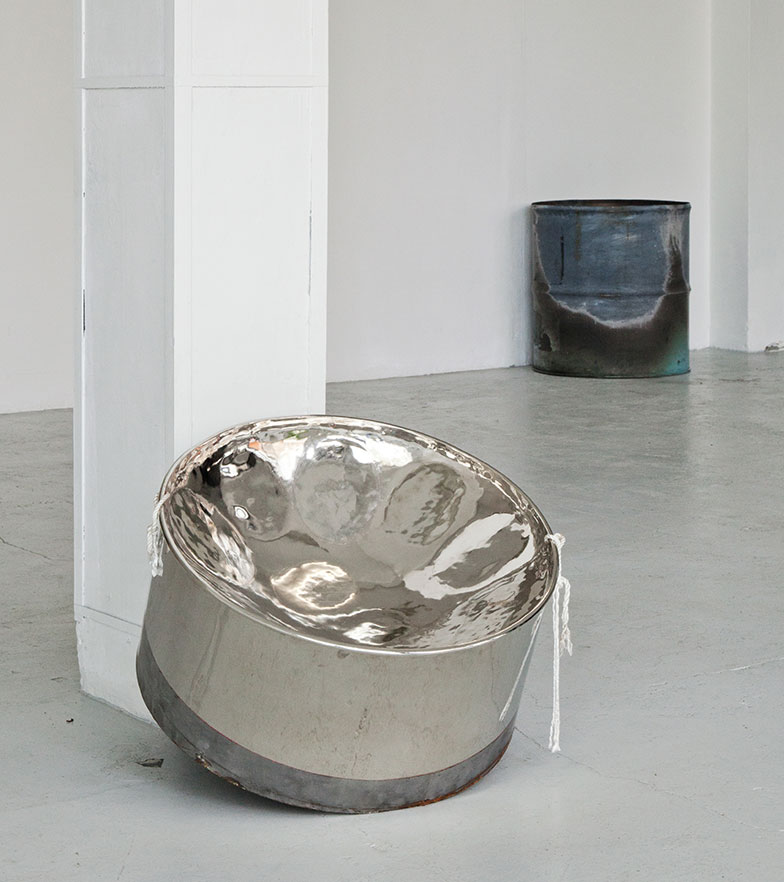Sound installation
(oil drum / steel-drum, mechanical system, electronics ; Ø 58 x 28 and Ø 58 x 62 cm)

The steel drum emerged as part of a series of resistance movements in Trinidad and Tobago, where protests took the form of percussion orchestras, using the resources of the region's flourishing petroleum industry. Later popularised by the US Army, the development of the steel drum is entangled in the complex history of the Caribbean, and rather remote from its popular image today – as the installation suggests by displaying the strata’s of its making process. While it slowly plays a cyclical melody through a mechanical system placed inside the instrument, the installation also reveals a shift in this particular steel drum, which isn’t tuned to a standard chromatic scale, but to a Middle Eastern ‘maqam’ – implicitly forging connections to broader cultural and economic patterns. The title, 'Resource Curse', refers to a paradox whereby having a wealth of natural resources, such as oil, gas or minerals, tends to bring instability to countries rather than prosperity, as their financial benefits increase economic volatility and political turmoil.
Initiated in the context of the project Malleability Revisited with Expodium, Utrecht; mechanics realized thanks to the Lycée Jean Zay and Le Creux de l'enfer, Thiers
Un steel-drum dont la gamme musicale a été altérée en un maqam perse-arabe, Rast, joue une mélodie cyclique grâce à un système mécanique placé à l'intérieur de l'instrument. Dévoilant en strates les différentes étapes de sa fabrication (du baril de pétrole au steel-drum), l'instrument, avec son accordage spécifique, perturbe l'origine géographique et les évocations habituelles de ce symbole des caraïbes en l'associant au Moyen-Orient - et aux questions géostratégiques et ses questions géostratégiques.
Le titre La malédiction des ressources naturelles fait référence à un paradoxe économique selon lequel les pays riches en ressources naturelles (pétrole, gaz, minéraux...) ont tendance à connaître une croissance plus difficile que les pays dont le sous-sol est moins généreux, car les bénéfices qui en émanent accroissent la volatilité de leur marché et sont source d'instabilité politique.
Initié lors du projet Malleability Revisited avec Expodium, Utrecht ; méchanique réalisée avec le Lycée Jean Zay / Le Creux de L'enfer, Thiers